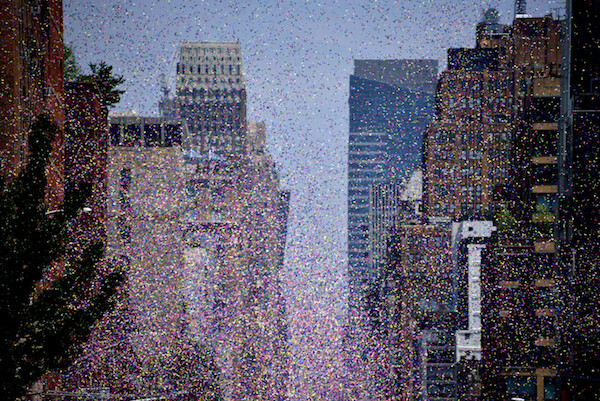The hills are alive … with the sound of protest.
Plans to run a hotel out of a former home of the von Trapp family immortalized in the movie “The Sound of Music” have triggered fierce resistance from neighbours who fear tourists will tie up traffic and make a nuisance of themselves.
“We will fight this with all means at our disposal,” said Andreas Braunbruck, who lives near the Villa Trapp in a neighbourhood of Salzburg already teeming with “Sound of Music” tourists seeking a glimpse of the house.
“Buses and cars are constantly in the street in front of our homes as it is,” he told Austrian television Sunday.
The 125-year-old, pale yellow villa trimmed in white and black is perched on the outskirts of Salzburg, where the 1965 film starring Julie Andrews and Christopher Plummer was made.
The original Broadway musical and the film tell the story of a Second World War-era Austrian nun-turned-nanny who cared for a widower’s seven children, taught them how to sing and eventually fell in love with him. It altered some details of the family’s history.
Baron Georg von Trapp, the real-life widower, lived in the villa with his family from 1923 to 1938. After the Nazis confiscated the property in 1939, SS chief Heinrich Himmler moved in and stayed until 1945.
The von Trapps emigrated to the U.S. and settled in Vermont, where their family lodge in Stowe remains a popular tourist attraction in its own right.
Even though the Salzburg villa is the real deal, it does not appear in the movie, which used a lakeside castle and other locations for the exterior garden scenes. All of the interior shots were filmed in a Hollywood studio, and the famous opening scene of Andrews running across an alpine meadow was shot over the border in Bavaria, Germany.
Wilfried Haslauer, a Salzburg tourism official, announced plans last week to refashion the villa into a hotel.
Haslauer said the park surrounding the villa also will be open to the public. He said refreshments and souvenirs will be sold in a pavilion to be built there, and that original furnishings that once belonged to the family would be displayed.
“Finally, after decades, this wonderful place will be opened to the public,” Haslauer said in a statement.
Manfred Schitter does not think it is so wonderful.
“Nobody ever talked to us about all this,” said Schitter, who also lives nearby. “When you want to make something like this, you ought to speak to the abutters. That didn’t happen in this case.”
Marianne Dorfer, a hotelier who is overseeing the project and is planning a gala opening of the new inn July 25, played down the controversy, saying guests would be encouraged to use public transportation.
Brochures for the von Trapp hotel will play up that point, she said.
Austrian ambivalence about the project is understandable.
Although “The Sound of Music” has become a classic and still enjoys a cult following in the U.S. and other countries 43 years after it premiered, many local residents do not know much about it because the movie was not dubbed into German or widely distributed in Austria.
Officials in Salzburg, even better known as the birthplace of composer Wolfgang Amadeus Mozart, acknowledge the film is a tourism magnet: 300,000 foreign visitors a year take a “Sound of Music” bus or walking tour of the movie’s locations.
Braunbruck, the protest organizer, said he is just after a little peace and quiet.
“Tourist attractions have only one purpose,” he said, “and that’s to bring in people.”

















